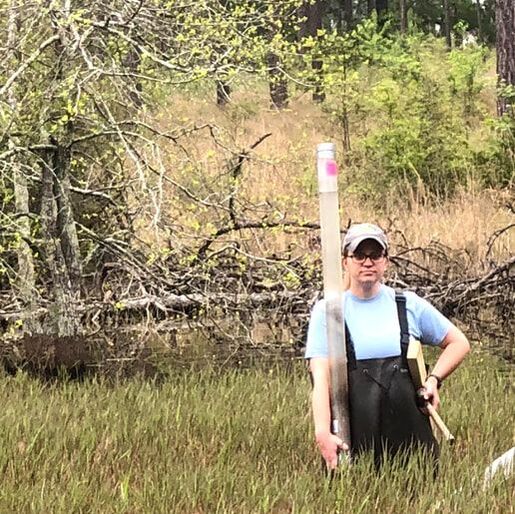Twitter: @fcodonnell
I see ecohydrology as a systems approach to hydrology that considers two-way interactions between water and the physical, biological, and human environment. While this traditionally meant the interaction between water and vegetation, I see the influence of ecohydrology in a lot of creative approaches to researching complex systems involving water and people, animals, biogeochemical cycles, soils, governance systems, infrastructure, and more.
What are your undergraduate and graduate degrees in?
My undergraduate degree is in Organismic and Evolutionary Biology and my graduate degrees are in Civil and Environmental Engineering with a focus in water resources, so I am very much an ecohydrologist by training.
How did you arrive at working in/thinking about ecohydrology?
I had two wonderful research experiences as an undergraduate, one working in a plant physiology lab studying water transport in trees and the other writing a senior thesis about the carbon dynamics of forest ecosystems. I applied to graduate programs to continue my work in forest biogeochemistry, but had my application picked up by a new faculty member looking for students to study ecohydrology. I got to do my graduate research on coupled carbon-water dynamics in savannas, connecting my interest in carbon with my roots (literally!) in plant physiology and water.
What do you see as an important emerging area of ecohydrology?
I think there is a lot of cool stuff going on right now around what I’ll call periodically aquatic environments, for lack of a better term. These are systems like geographically isolated wetlands (which I study) and ephemeral streams that are inundated seasonally or under certain climate conditions. They provide important ecosystem services but are very sensitive to changes in climate and land cover. I’m always interested in topics that force us to question how we subdivide our discipline, and this area of research challenges the traditional division in research between terrestrial and aquatic ecosystems.
Do you have a favorite ecohydrology paper? Describe/explain.
I really like the old “Wet/Dry Daisyworld” paper. One recurring challenge I’ve dealt with over the years as a researcher is determining how the spatial scale of my analysis of a heterogeneous environment affects my results. This paper gives an elegant mathematical description of the problem that made it “click” for me when I read it in grad school.
Baldocchi, D.D., Krebs, T. and Leclerc, M.Y., 2005. “Wet/dry Daisyworld”: a conceptual tool for quantifying the spatial scaling of heterogeneous landscapes and its impact on the subgrid variability of energy fluxes. Tellus B: Chemical and Physical Meteorology, 57(3), pp.175-188.
What do you do for fun (apart from ecohydrology)?
I love to cook and have enjoyed learning to make the specialty dishes of the many places I’ve lived as an academic. Currently working on my southern bbq skills!

 RSS Feed
RSS Feed